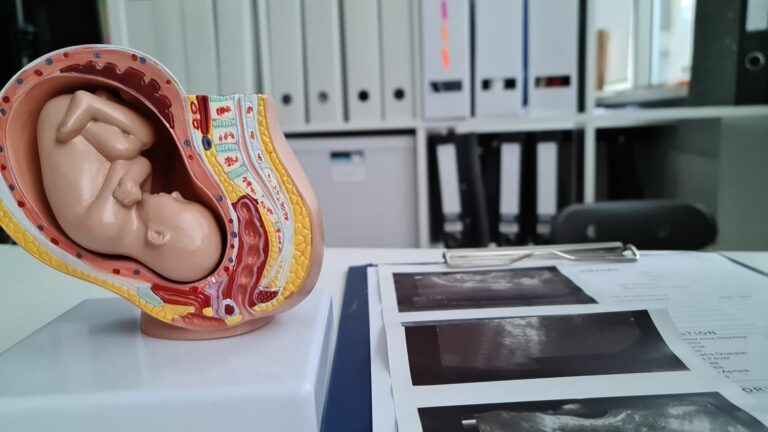
In vitro fertilization (IVF) has transformed the lives of countless couples grappling with infertility in India.
As IVF success rates continue to climb, reaching 30-50% depending on individual circumstances, more and more people are turning to this assisted reproductive technology to fulfill their dreams of starting a family.
However, the IVF journey doesn’t end with a positive pregnancy test. For many, it marks the beginning of a new chapter – one where genetic counseling takes center stage.
Key Takeaways
- Genetic counseling after successful IVF helps address concerns about inherited disorders and make informed decisions
- Carrier screening and prenatal testing are key components of genetic counseling
- Counseling sessions involve reviewing medical history, assessing risks, and discussing testing options
- Genetic counseling empowers couples to make choices about prenatal testing, family planning, and reproductive alternatives
- Seeking support is crucial for navigating the complex emotions and ethical considerations that may arise
In this article, we’ll dive deep into the world of genetic counseling after successful IVF in India.
We’ll explore the reasons behind this growing trend, what to expect during a typical counseling session, and how to make informed decisions that prioritize the health and well-being of your future child.
Why Consider Genetic Counseling Post-IVF?
Picture this: You’ve just received the incredible news that your IVF cycle was successful. Amidst the joy and excitement, a niggling thought enters your mind – “Could my baby inherit a genetic condition?” It’s a concern shared by many, and it’s precisely where genetic counseling comes in.
Genetic counseling offers a space to address these worries head-on. By working with a qualified professional, you can gain a clearer understanding of the potential risks and make informed choices moving forward.
Here are some key benefits of genetic counseling:
- Carrier Screening: India has a significant prevalence of recessive genetic disorders like cystic fibrosis, spinal muscular atrophy, and thalassemia.
Genetic counseling can help identify if you or your partner are carriers of these conditions. This knowledge is especially crucial for couples who have undergone IVF with donor gametes, as it allows them to choose a donor who is not a carrier of the same condition. - Prenatal Testing: If certain risks are detected, your counselor may discuss options such as amniocentesis or chorionic villus sampling (CVS) to assess your baby’s genetic health in utero.
These tests can provide valuable information about chromosomal abnormalities or specific genetic disorders, allowing you to prepare for any special needs your child may have. - Understanding Hereditary Conditions: A thorough review of your family history during counseling may reveal inherited disorders that warrant further testing or specialized care.
For example, if multiple family members have been diagnosed with cancer at a young age, genetic testing can determine if you carry a predisposition that could impact your child’s future health.
But where do you begin? First things first: finding the right IVF clinic. Look for centers that offer comprehensive genetic counseling services alongside their IVF programs.
Many major hospitals across India now have dedicated genetic counseling departments, such as:
- IVF Centers in Mumbai
- IVF Centers in Delhi
- IVF Centers in Bangalore
- IVF Centers in Hyderabad
- IVF Centers in Ahmedabad
These cities are home to some of the most reputable IVF clinics in the country, with experienced professionals who can guide you through the genetic counseling process.
Inside a Genetic Counseling Session
So, you’ve scheduled your first appointment with a genetic counselor. What can you expect? While each session is tailored to your unique needs and concerns, here’s a general roadmap:
- Medical and Family History Review: Come prepared to share detailed information about your and your partner’s health history, including any known genetic conditions in your families. Your counselor will use this information to construct a detailed pedigree, mapping out patterns of inheritance and potential risks.
- Risk Assessment: Based on the information you provide, your counselor will evaluate the potential genetic risks associated with your pregnancy. They’ll take into account factors such as your age, ethnicity, and any previous pregnancy complications or losses.
- Discussion of Testing Options: This is where you’ll explore the different types of genetic tests that may be appropriate for your situation.
Your counselor will walk you through the pros and cons of each option, which may include:- Carrier screening for recessive disorders common in your ethnic groupPrenatal diagnostic tests like amniocentesis or CVS to detect chromosomal abnormalitiesPreimplantation genetic testing (PGT-A) performed on embryos before transfer to screen for aneuploidy or specific genetic conditions
- Understanding Results: If you opt for genetic testing, your counselor will sit down with you to explain the results in detail.
They’ll help you grasp the implications for both you and your baby, and discuss any follow-up testing or specialist consultations that may be necessary.
It’s important to note that genetic counseling is a collaborative process. Your partner’s presence and participation are crucial for making joint decisions and ensuring you’re on the same page every step of the way.
Many clinics, such as IVF centers in Chennai, Kolkata, and Pune, emphasize the importance of involving both partners in the counseling process.
Making Informed Decisions
Armed with the knowledge and guidance from your genetic counselor, you’re now equipped to make informed decisions about your pregnancy and future family planning.
Here are some key areas where genetic counseling can empower you:
- Prenatal Testing Choices: You may opt for invasive tests like amniocentesis or chorionic villus sampling (CVS), or choose newer non-invasive methods such as NIPT (Non-Invasive Prenatal Testing).
Your counselor will help you weigh the risks and benefits of each option based on your specific circumstances. - Family Planning: Understanding your potential risk of passing on certain conditions can shape your decisions about future pregnancies.
For example, if you and your partner are both carriers of a recessive disorder, you may choose to pursue IVF with preimplantation genetic diagnosis (PGD) to select unaffected embryos for transfer. - Reproductive Alternatives: If significant risks are identified, you may explore options like using donor eggs or sperm, or consider adoption.
Your counselor can provide resources and referrals to help you navigate these alternative paths to parenthood.
It’s crucial to acknowledge that genetic testing can sometimes lead to difficult choices. If a serious condition is detected, you may face the heartbreaking decision of whether to continue the pregnancy.
Your genetic counselor will be there to offer support and guidance as you navigate these complex emotions and ethical dilemmas.
Remember, genetic testing is a powerful tool, but it has its limitations. No test can detect all possible genetic conditions.
Your counselor will be upfront about what specific disorders can be screened for and the accuracy of different testing methods.
It’s important to have realistic expectations and understand that a “normal” result doesn’t guarantee a perfectly healthy child.
Finding Support on Your Journey
As you embark on this path of genetic counseling after IVF, know that you’re not alone. In addition to the expertise of your counselor, there are many avenues for finding support and connection:
- IVF Support Groups in India: Joining a local support group can provide a sense of community and understanding from others who have walked a similar path. Cities like Jaipur, Lucknow, and Kanpur have active infertility support networks.
- Online Communities: There are numerous online forums and social media groups dedicated to IVF and genetic counseling where you can find information, ask questions, and share your experiences.
These virtual communities can be especially helpful for couples living in smaller cities like Ludhiana or Agra who may have limited local support options. - Mental Health Professionals: The emotional impact of IVF and genetic counseling can be significant. Don’t hesitate to seek the help of a therapist or counselor who specializes in fertility and reproductive issues.
Many IVF clinics in cities like Ghaziabad and Varanasi have in-house counselors or can provide referrals to local mental health providers.
As you take each step forward, remember to be gentle with yourself. The journey of IVF and genetic counseling is a deeply personal one, filled with both challenges and triumphs.
Trust in the guidance of your healthcare team, lean on your support network, and know that every decision you make is rooted in love and the desire to give your child the best possible start in life.
Key Resources
- What are recessive disorders? (MedlinePlus)
- All About Thalassemia: Symptoms, Diagnosis, Treatment and Prevention (CDC)
- Indian Society of Human Genetics
- Understanding Preimplantation Genetic Testing (American Society for Reproductive Medicine)
- List of IVF clinics in India (FertilityDost)
Conclusion
Genetic counseling after successful IVF is a vital step for couples who want to be proactive about their baby’s health.
By working with a qualified counselor, you can address concerns about inherited conditions, assess your unique risks, and make informed decisions about testing and family planning.
Remember, knowledge is power. The more you understand about your genetic profile and reproductive options, the better equipped you’ll be to navigate this exciting new chapter with confidence and clarity.
As you move forward on your IVF journey, take heart in knowing that genetic counseling is a powerful tool for creating the healthy, thriving family you’ve always dreamed of.
Whether you’re pursuing IVF in major metros like Mumbai and Delhi, or in smaller cities like Aurangabad or Gulbarga, genetic counseling services are becoming increasingly accessible across India.
Don’t hesitate to reach out to your IVF clinic or healthcare provider to learn more about the options available in your area.
With the right information, support, and guidance, you can embrace the transformative potential of genetic counseling and approach your post-IVF pregnancy with peace of mind and joyful anticipation.






